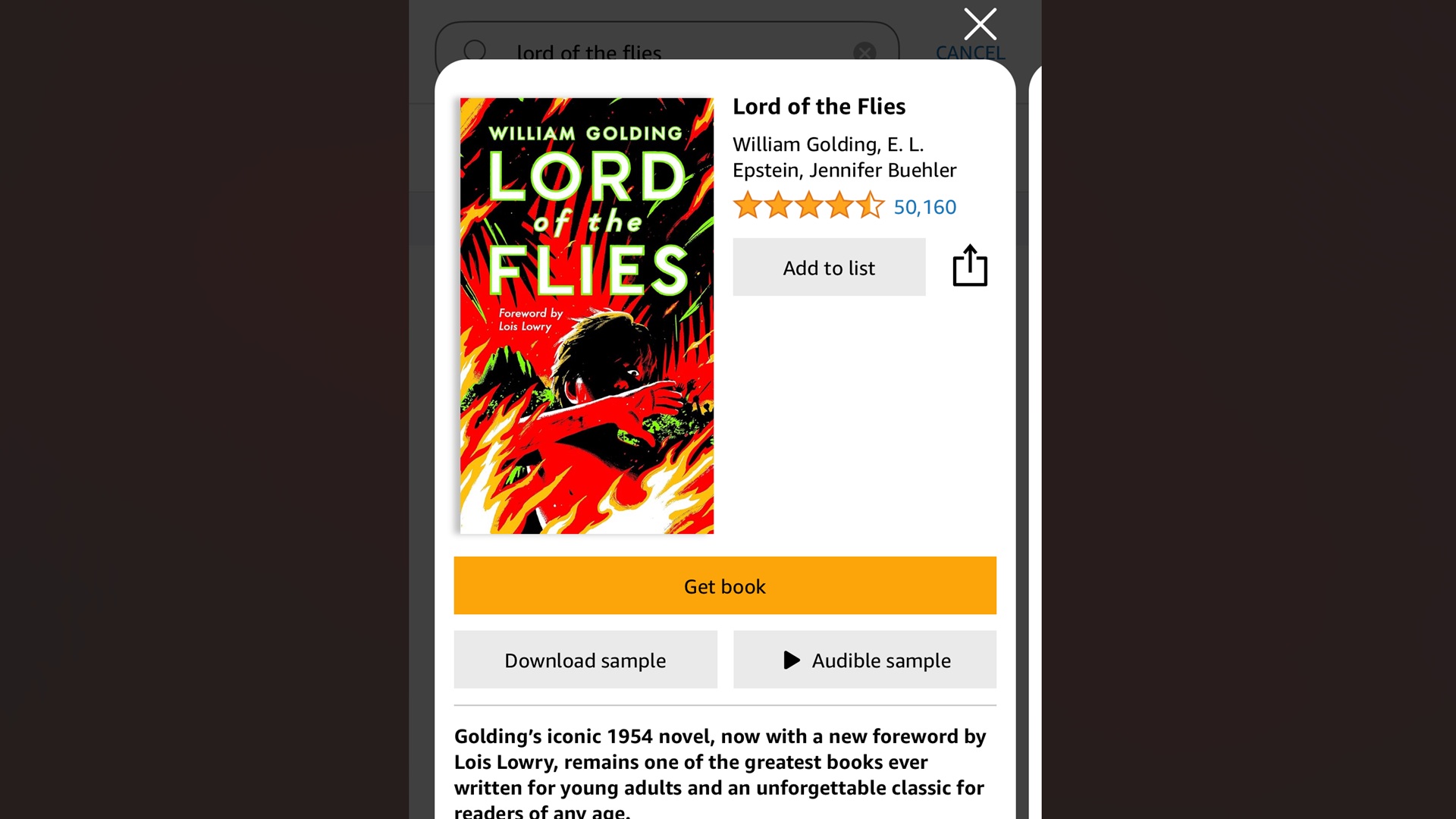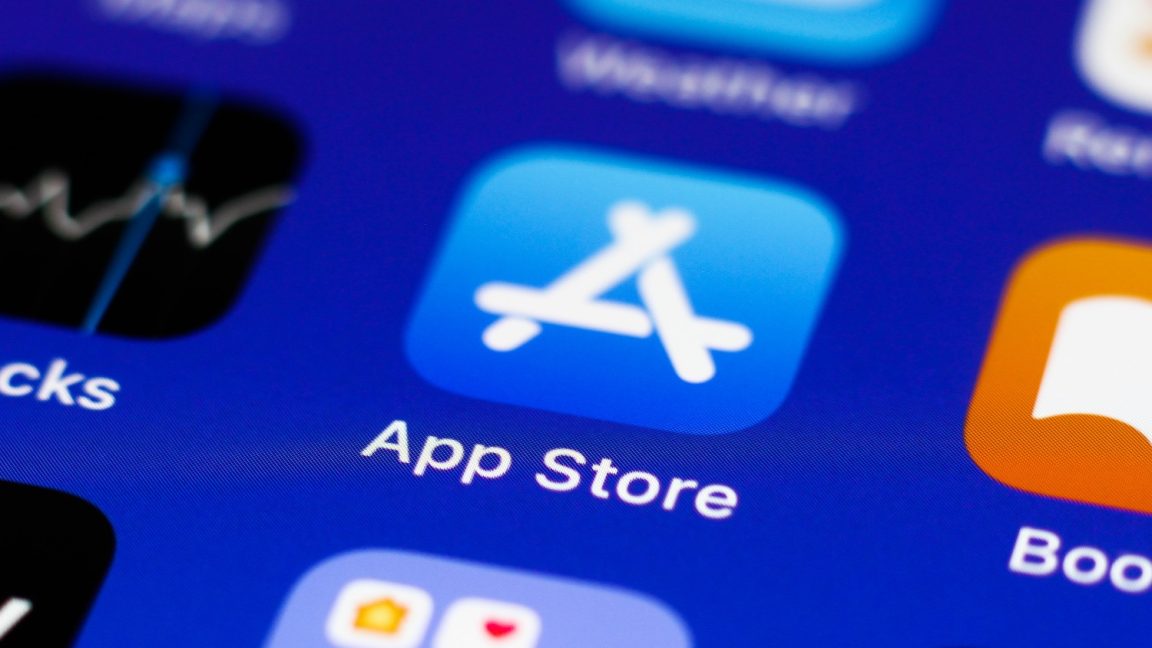For the first time ever, Amazon Kindle users on iOS can tap a button to buy books
May 6, 2025
Last week, a federal judge ruled that Apple was in “willful violation” of a court injunction that required the company to refrain from “anticompetitive conduct and anticompetitive pricing” in its tightly controlled iOS App Store. Part of the ongoing litigation between Epic Games and Apple, the injunction specifically forbade Apple from “denying developers the ability to communicate with, and direct purchasers to, other purchasing mechanisms.”
Following the ruling, Apple said it would comply with the court’s injunction while the company continued to appeal the decision. The day after the ruling was handed down, Apple altered several of its App Review Guidelines to grant developers permission to do things they hadn’t been allowed to do before. As summarized in an email to developers, reported by MacRumors:
3.1.1: Apps on the United States storefront are not prohibited from including buttons, external links, or other calls to action when allowing users to browse NFT collections owned by others.
3.1.1(a): On the United States storefront, there is no prohibition on an app including buttons, external links, or other calls to action, and no entitlement is required to do so.
3.1.3: The prohibition on encouraging users to use a purchasing method other than in-app purchase does not apply on the United States storefront.
3.1.3(a): The External Link Account entitlement is not required for apps on the United States storefront to include buttons, external links, or other calls to action.
We’re already beginning to see new versions of apps that take advantage of these changes. Case in point: Amazon’s Kindle app for iPhones and iPads, which from its original launch in 2009 up until yesterday wouldn’t actually let anyone buy books in the app. Users instead needed to navigate on their own to Amazon’s store in Safari or on their PC and Mac and buy the books they wanted, at which point the books would be available in the Kindle app.
As of an update released today, the iOS app still doesn’t allow books to be purchased directly in the app, but you can search Amazon’s virtual bookstore inside the app and tap a new “Get Book” button that automatically pops you over to Amazon.com in your phone or tablet’s default browser. This is not as convenient for users as allowing them to purchase digital goods or services directly in the app, but it does make things a lot more friendly for users of apps whose developers don’t want to pay Apple a cut.

For the first time ever, the Kindle app on iOS can automatically direct book buyers to Amazon’s site to complete a purchase.
Credit:
Andrew Cunningham
Apple’s position on its App Store commissions has generally been, to write a high-level summary, that these third-party app developers benefit from the size and reach of Apple’s platform, the work Apple does to maintain the App Store and to make apps discoverable, and Apple’s payment processing services, among other benefits.
Even when it complied with a court order to allow third-party developers to use alternate payment processors in their apps, Apple still insisted on a 12 to 27 percent cut (rather than the usual 15 to 30 percent) to cover these other less-tangible benefits of offering apps and services on Apple’s devices. (Apple’s method of complying with that ruling, including onerous filing requirements for developers who used third-party payment services, was one of many things Judge Gonzalez criticized Apple for in last week’s ruling.)
A new headache for Apple
Apple is appealing last week’s ruling, and it may well succeed in the end, giving the company the ability to roll back these rule changes and once again force developers to either use Apple’s in-app payments or force users to buy goods and services externally. But even if this change is only temporary, it still creates new potential PR headaches for Apple.
That’s because, from 2009 until yesterday, the lack of simple user-friendly features like those redirect buttons was just the way these apps worked. It seemed silly, and it was a minor pain, but at this point, I’m so used to working around it that it doesn’t even occur to me to try to buy Kindle books from within the Kindle app.
But for as long as Amazon, Spotify, and other longtime critics of Apple can take advantage of the changed rules, they’ll be helping to create a new baseline expectation: that apps that don’t offer direct in-app purchases can still easily redirect you to a place where you can make those purchases. It may also lead to some apps that currently do offer in-app purchases to change that to a redirect button instead to get around giving Apple a cut of their revenue.
If Apple wins the appeal, this puts the company in a position of taking something away from developers and users, rather than preserving the status quo. Loss aversion among Apple’s users could result in a fresh wave of user complaints and negative coverage, even though this “new” situation would be the same as it was in the very recent past, and Apple would have to weigh any potential blowback against whatever revenue it earns from locking developers into its own in-app purchasing system.
Search
RECENT PRESS RELEASES
Related Post




